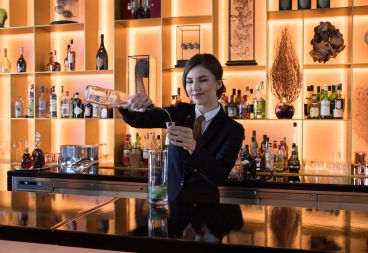
The emergence of the pandemic has inevitably brought about a global paradigm shift that will affect all sectors.. Education must enhance exclusive and personalized training, based on the transfer of knowledge and experience. This will involve comprehensive learning that provides the student with the necessary skills to function in VUCA (volatility, uncertainty, complexity, and ambiguity) environments and build collaborative habitats where technical training is enriched by practice, nurturing curiosity, a sense of self-criticism, reflection, and dialogue. And it is here where technology, and the development of AI (artificial intelligence), will mark the characteristics of the new classroom concept.
Innovation, adaptation, and interaction with new AI applications will be key to forging successful training models, which can also cater to the different profiles, needs and expectations of a new generation of students.
Its complete application will not only make learning more effective, but it will also help teachers to carry out their tasks in a more efficient way. The current solutions already allow very faithful replication of practical spaces where professional skills can be acquired without taking risks. In centers like Les Roches we have been incorporating these tools for years, but also the current context has led us to work on formulas that I am convinced will also be part of specialized hospitality education in the coming years. An example is Connect, an academic program based on the “phygital” experience that will begin in October and which aims to be an alternative for all those students with travel restrictions. The key? Merge online and offline learning by combining 10 weeks of remote teaching with 10 face-to-face weeks on campus.
Conceived as a unique and exceptional solution, “Connect” replicates the same modules of the Bachelor of Business Administration in Global Hospitality Management and implements them virtually. Students receive personalized advice, videos and online tutorials, and they attend tastings, guided visits to wineries to discover the origins of oenology or sessions with hotel managers to learn about the challenges they face in their daily management duties.
This is a large-scale project that involves faculty, industry experts, and even brands in an alternative learning process, capable of successfully interacting and ensuring a teaching model that not only trains them for the current reality of the hospitality industry but also enables students to be active innovators within the current model.
This challenge recalls the origins of the concept of hospitality; a term understood in Switzerland in the late 1800s, when the notion of tourism began to spread throughout Europe. It was one of the first destinations to offer vacation packages and the first to understand that qualified staff was a key success factor. The Swiss brought many skills to the Hotel Management approach, including rigor, precision, attention to detail, timely service or discretion.
Undoubtedly, the time has come to establish a system that favors individualized education, with reduced classrooms and semi-face-to-face (or blended learning) study plans. We know that technology will help personalize training models and make learning more interactive, but there is an innate value in human connection and interrelation. Comprehensive education is only possible when we find a balance, especially in the hospitality sector, where it should not be forgotten that human capital is the essence. We live and work in a people-to-people industry and the real challenge for the education sector will be finding harmony between our origins and an increasingly immediate future marked by new technologies.
But there is more. It will not be enough with the application of new tools or new blended programs. In a world where technological and knowledge advances continually reshape the workplace, it is vital that we practice lifelong learning. Already before the pandemic, a survey from the University of Oxford revealed that about 47% of total U.S. employment will be computerized over the next two decades, which will require many people to acquire new skills to remain employable.
This reality adds to the growing digital training and new learning systems. I could not agree more with a reflection made by my colleague Elise Masurel, Managing Director of École Ducasse, a sister school of Les Roches which is also part of Sommet Education hospitality education group, and who I believe today makes even more sense when she said, “understanding continuous learning as part of a lifestyle is essential to achieve personal satisfaction, improve self-sustainability and employability”.

